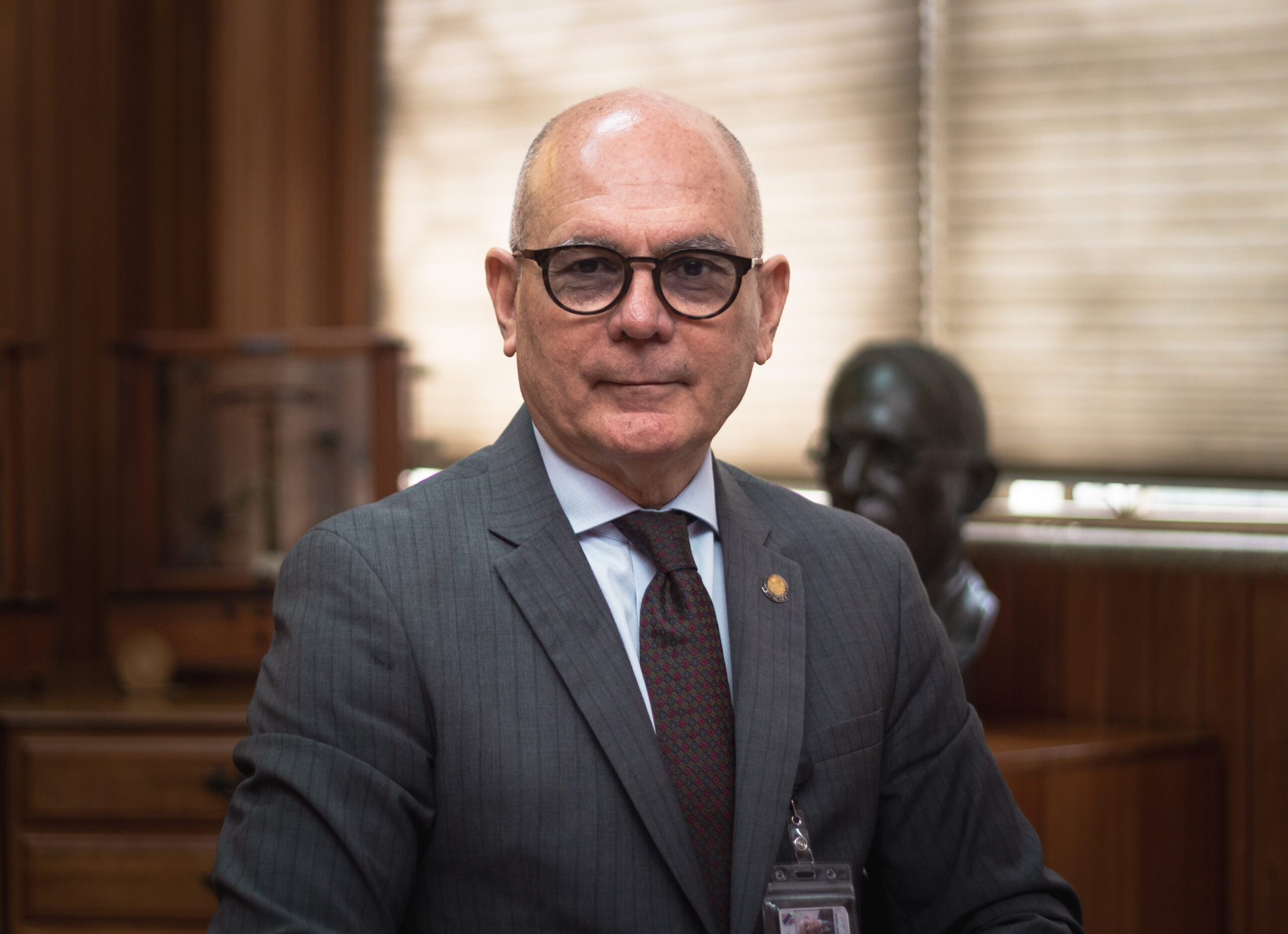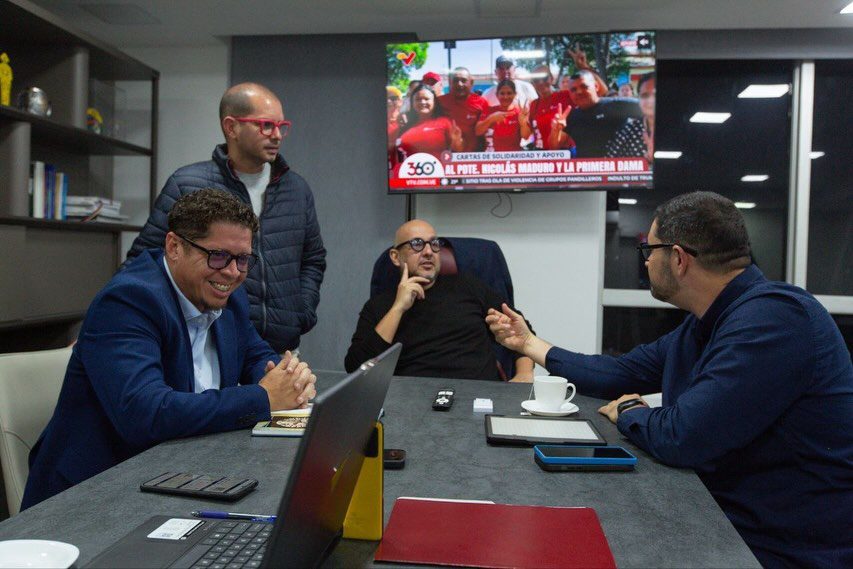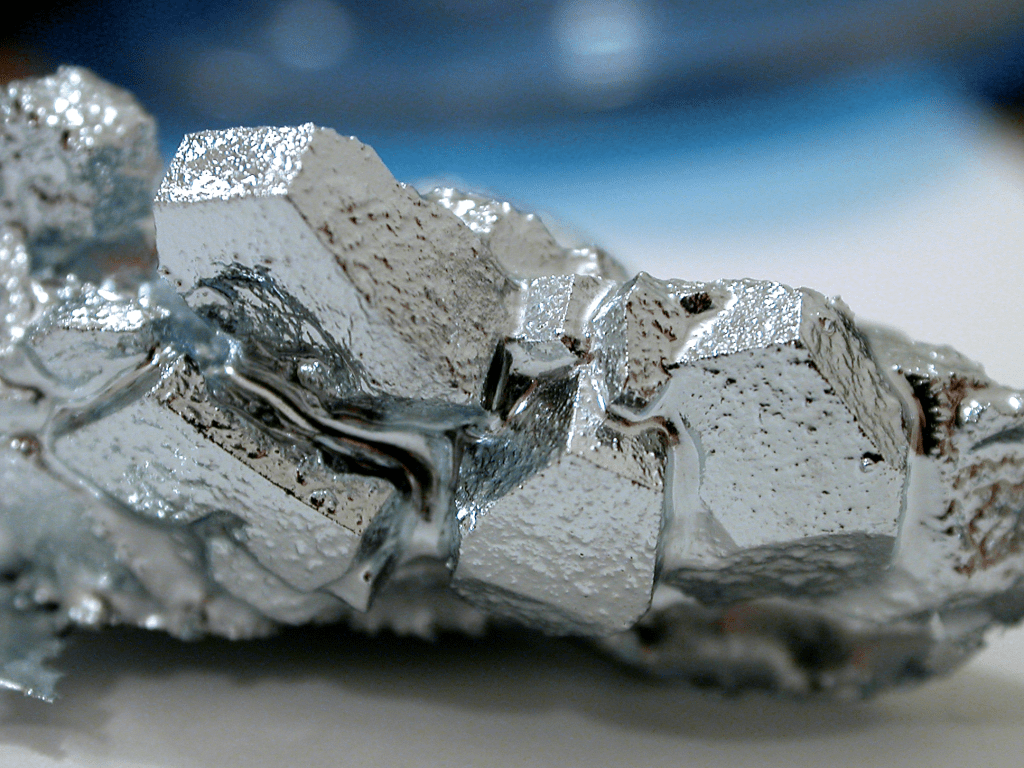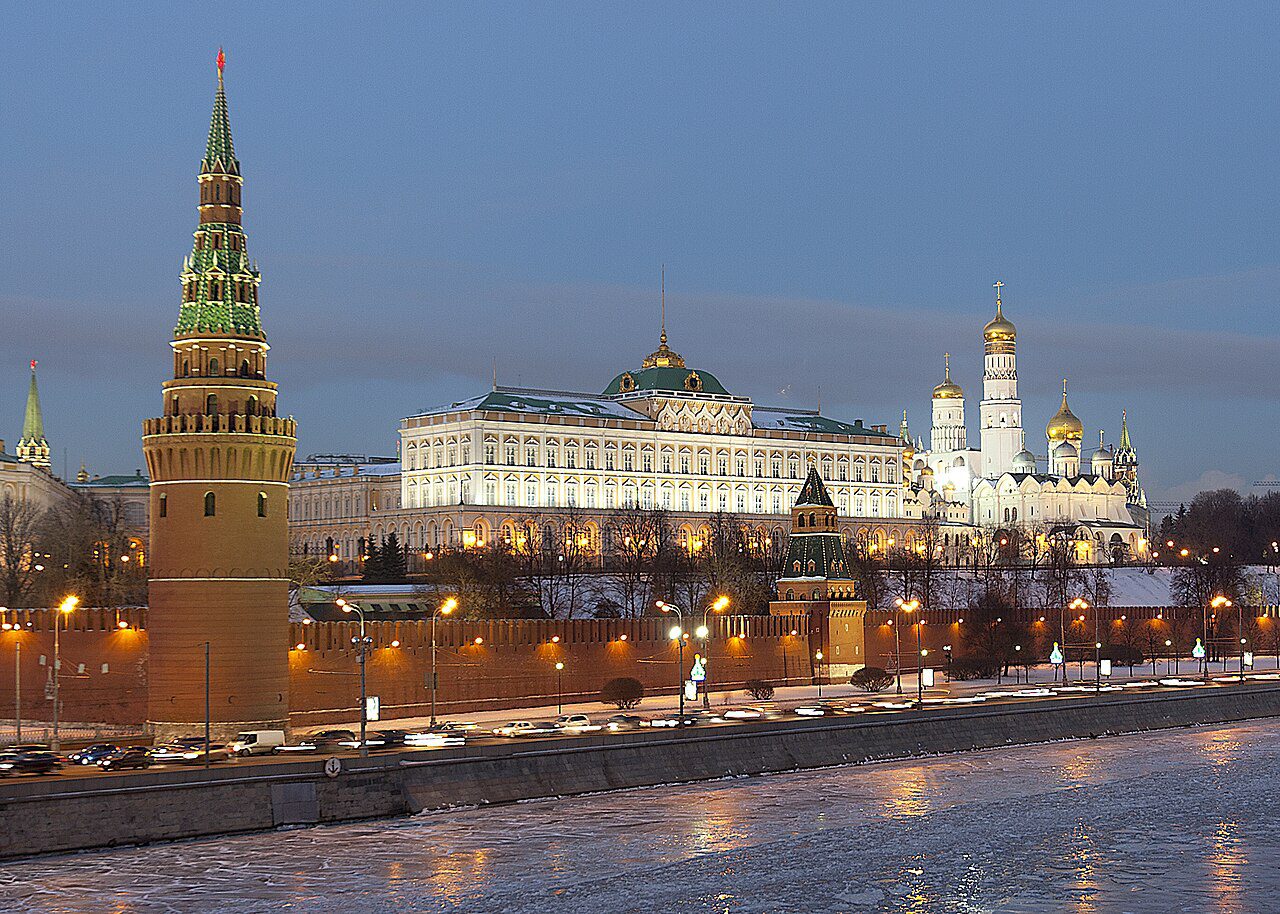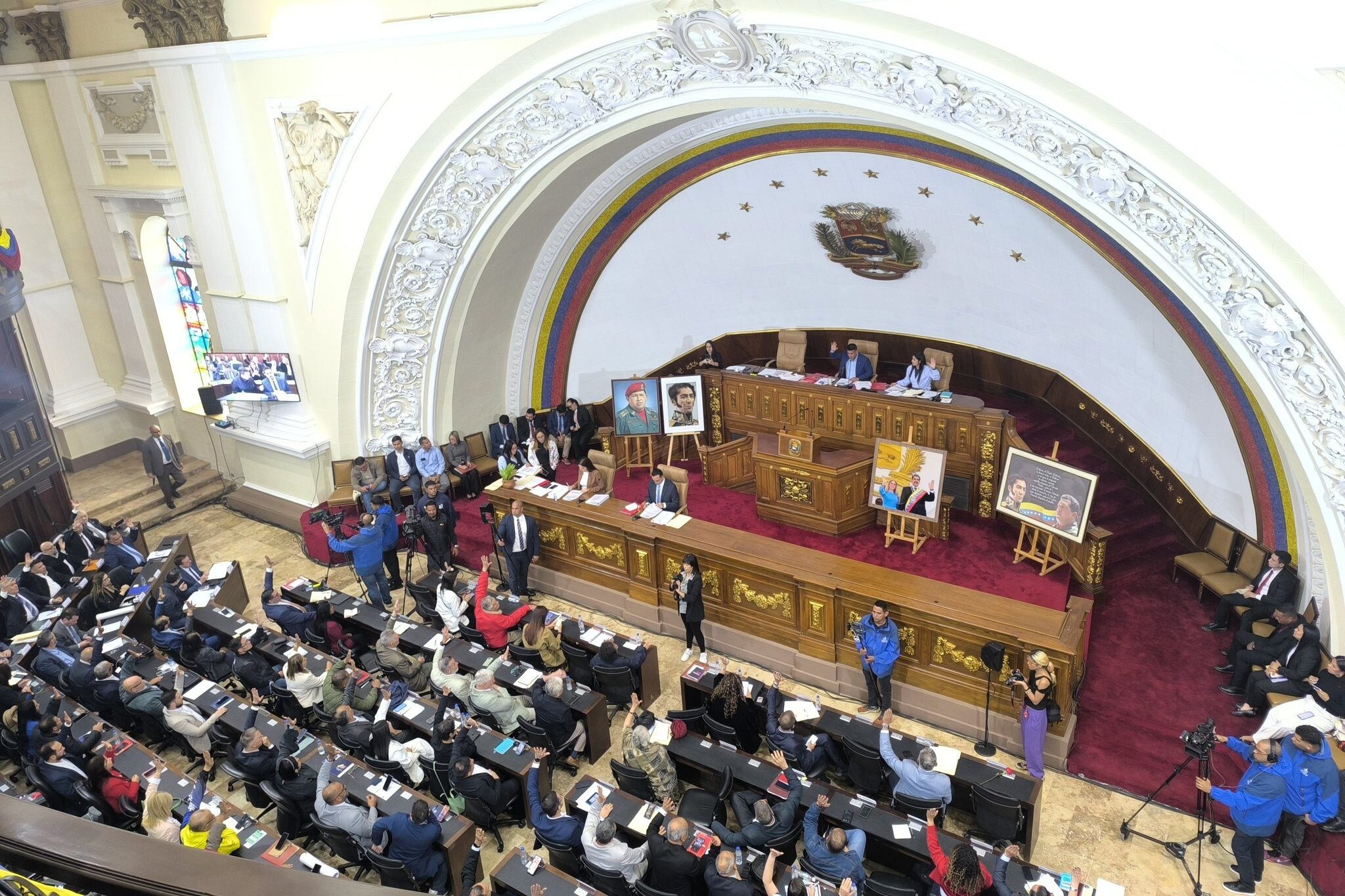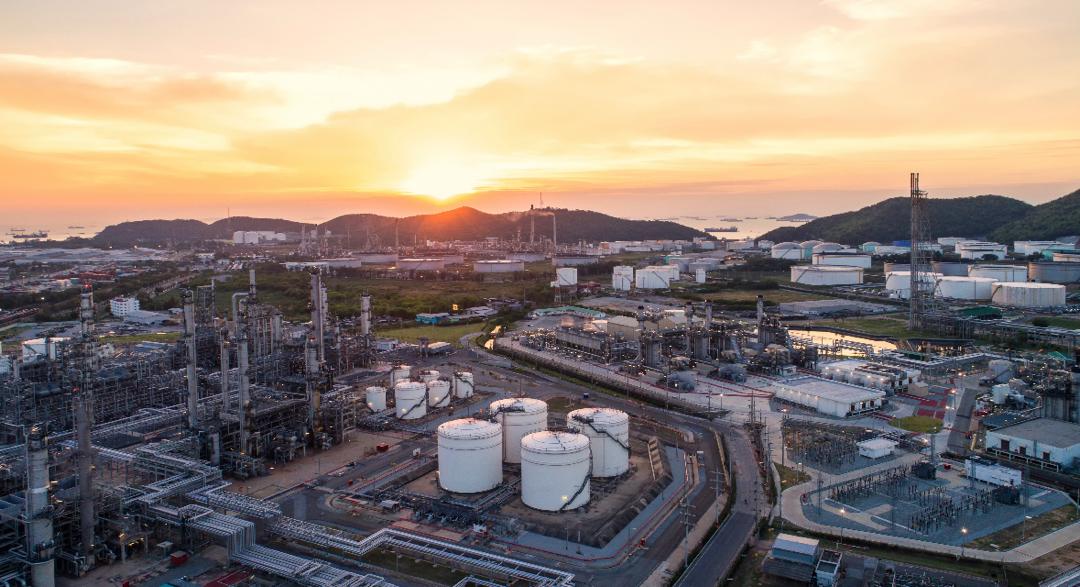Dr. Mario Patiño Torres highlighted his personal commitment to the defense of institutionality after stating that “I would not want to go down in history” as part of the generation that “delivers” the Central University of Venezuela. Photography: Luis Silvera / Guacamaya.
Guacamaya, November 2, 2025. Dr. Mario Patiño Torres is one of the most prominent academic figures in the Venezuelan medical field. He is the current dean of the Faculty of Medicine of the Central University of Venezuela (UCV), a benchmark institution in the training of health professionals. Dr. S. always prefers to be referred to by his two surnames, in recognition of his family roots and values that accompany him in his professional and academic life.
He has had an outstanding career that reflects a deep commitment to academia and public health. In the past he became president of the Venezuelan Society of Internal Medicine, a branch of which he is a specialist. He is also a doctor in Education from the Complutense University of Madrid (UCM), and, of course, a full professor at the Faculty of Medicine of the UCV.
In the context of the recent canonization of Dr. José Gregorio Hernández, a Venezuelan doctor, also a UCV member and a symbol of faith, science and solidarity, the office of Dr. Patiño Torres reflects that same historical and spiritual tradition. In his office stands out a painting donated more than a century ago by the National Academy of Medicine, a work that represents the “Doctor of the Poor”.
In turn, a portrait of José María Vargas rests, while waiting for the return of a replica of the equestrian portrait of the Liberator Simón Bolívar, currently under restoration. By the way, Dr. Patiño Torres recalls that Bolívar, on his last trip to Venezuela, in 1927, founded the Faculty of Medicine – then called the Medical Faculty of Caracas – together with Vargas, by then appointed first rector of the UCV.
This visual heritage reflects the relevance of such emblematic characters who marked the history of medicine and education in Venezuela. The Faculty of Medicine has its antecedents in the historic Prima Chair of Medicine, created in 1763, which laid the foundations for medical training in the country and whose tradition continues today with the commitment of Dr. Patiño Torres and his team.
You can enjoy this full interview in audiovisual format through YouTube:
The University has always been a life project and Medicine, obviously, is my passion, Medicine and Teaching.
How did your vocation for medicine come about?
Those things that they call vocation sometimes one finds difficult to put in objective terms. Actually, since I was a child, I always told my parents that I wanted to be a doctor. Don’t ask me why or where from because I was born in a small town in the state of Bolívar, which is Upata. My parents were technicians, none of them had a link with medicine.
I was trained with the Jesuits in Puerto Ordaz, at the Loyola Gumilla School. I recognize that much of our social sensitivity has that formation with the Jesuits. Even within my vocational possibilities was the priesthood. Finally, I opted for Medicine, which was what I had considered since I was a child. And not only for Medicine, but for Medicine at the Central University of Venezuela.
From a very young age I used to say “I want to be a UCEVIST” and that brought me to do my undergraduate studies at the Central University of Venezuela. At that time there was a basic cycle to enter Medicine. We had to spend a year in that basic cycle in what is currently the School of Nursing that is in Sebucán. It was a filter really. Many people stayed there who could not overcome it.
And I think that from then on, not only the profession of doctor, but the vocation or devotion to the Central University (of Venezuela) was consolidated. The University has always been a life project and Medicine, obviously, is my passion, Medicine and Teaching. Notice that the doctorate I am doing is in Education because I felt that I did not have enough tools to give more rigor to my practice as a teacher at the University.
The Faculty of Medicine continues to train about 1,200 health professionals every year: 600 undergraduate and about 600 specialists at the postgraduate level, and that has not changed over time.
Regarding this responsibility that you mention to us that finally led you to become dean, what do you think are the main difficulties that the Faculty is currently going through?
The isolated Faculty does not. It is the entire University, not only the Central University of Venezuela, but the public and autonomous university, which has been subjected to an induced collapse in the last 20 years, and a budget redirected for more than 10 years that puts us in a condition of almost survival.
However, this University remains the first university in the country and one of the first 35 in Latin America. That’s without a budget. Can you imagine what we would do at the Central University if they gave us the budget that by constitutional obligation it corresponds to the State to give us?
Now, many wonder how the Faculty of the University continues to function in these conditions. Well, the answer is that at a very high human cost. We have a teaching staff, in addition to being reduced in number, very precarious in working conditions and living conditions and, nevertheless, we continue to fulfill our responsibilities.
The Faculty of Medicine continues to train about 1,200 health professionals every year: 600 undergraduate and about 600 specialists at the postgraduate level, and that has not changed over time. Obviously I say that with a sacrifice and a cost that must be recognized not only to the faculty, but also to the administrative and worker employees because without that university community, the University would not function.
Sometimes in the morning you wake up and wonder if it really makes sense to continue. Well, the answer is yes, because the University deserves it, the Faculty deserves it, this is a legacy that must be taken care of. I always comment, I would not want to go down in history as part of the generation that delivered the Central University of Venezuela despite the adversities.
A faculty that is in those conditions, if they receive 100 students a year, you tell them that you are going to admit 200 students, from day one they tell me “Here is my letter of resignation” and we close the medical schools.
As part of those difficulties that you mention, since the COVID-19 pandemic, the delay of up to one year in the start of the activities of new admissions has been reported. Have any corrections been made in this regard? If not, what has been proposed to solve this problem?
I take this opportunity to say that the Faculty of Medicine is not only a faculty of medical training, it is a faculty of Health Sciences. The Faculty of Medicine has six schools: In addition to the two Schools of Medicine, “José María Vargas” and “Luis Razetti”, it has its Schools of Bioanalysis, Nutrition, Nursing and Public Health.
In the specific case of the two Schools of Medicine, as there were no graduates in 2021, as a result of the COVID-19 pandemic, this caused two cohorts to accumulate for admission. In this way, this year the students of the 2023 cohort are entering medical schools.
We have already completed two years of management. From day one, we identified that there is an important problem to solve. And there we place ourselves again in the context of limitations that are not only in the administrative sphere.
The salary issue is an academic issue. You don’t have decently paid teachers, and they are in a precarious situation, with many health problems, without a minimum social assistance system.
A faculty that is in these conditions, if they receive 100 students a year, you tell them that you are going to admit 200 students, which is not 200, because two accumulated cohorts add up to 614 students, from day one they tell me “Here is my letter of resignation” and we close the Schools of Medicine.
Where does the solution lie? Because of the availability of resources, in principle to better remunerate these teachers, necessarily to attend to 614 students with the number of teachers we have, and to improve the provision of pedagogical resources. If you do not create the conditions and they oblige, or force us, -of course, they are not going to do it- to enroll 600 students, you quickly identify that the quality of training will be totally compromised.
From very early in this administration, a project was prepared with great rigor from the Academic Coordination and the Administrative Coordination to, as a proposal, bring together the two necessary elements for the solution: 1) We will be given the resources tomorrow, and 2) we will immediately have all the disposition to address this problem.
That project was presented at the time to the Minister of University Education, Professor (Sandra) Oblitas, and to the successors, in the current case, Professor Ricardo Sánchez, on multiple occasions, through different channels, and so far there has been no response.
One understands that the country’s situation probably limits the availability of resources and that there are priorities, but it is important that through this means the national community knows that this is not a refusal of the authorities of the Faculty of Medicine. This is a situation that overwhelms us, that we would like to attend to as soon as possible, that we recognize or sympathize with these young people and their families who are in this situation of waiting up to two years.

José Gregorio’s imprint on our University and on national medical education has been there for decades. That legacy is not born right now with the canonization.
Recently, Dr. José Gregorio Hernández was canonized, thus becoming the first Venezuelan saint. As we know, he is a graduate of this Faculty. What does this fact represent for your students, especially in the training of the youngest?
I believe that the canonization, that significant event of which we are filled with joy, what it does is to universalize the figure of José Gregorio Hernández, because he has been a reference for the training of the Venezuelan doctor for more than a century. He died in 1919 and, since then, his figure and his legacy are not only seen from a spiritual point of view, but also academically.
José Gregorio was a student at this University, graduated from this Faculty, taught for 28 years, was a distinguished researcher, revolutionized both basic and applied research and generated very important knowledge. Among them, for example, he did important research on ischemic heart disease linked to the malaria parasite.
We could mention that the first laboratory of experimental physiology and microbiology was founded by Dr. José Gregorio Hernández in a structure annexed to the Vargas Hospital and was the first microbiology laboratory in Latin America. He changed pedagogical practice, he is a transformer of medical education, in addition to his service as a doctor.
So, that imprint is there. Just now, in addition to this recent condition of canonization, he was proclaimed (by the Archdiocese of Caracas) as the “Patron Saint of Venezuelan doctors”, a condition that had not been given to him. But I insist, José Gregorio’s imprint on our University and on national medical education has been there for decades. That legacy is not born right now with the canonization.
José Gregorio is part of the university culture and the training of doctors in our University, in our Faculty, and I am convinced that in all the faculties of Medicine in the country because the Venezuelan doctor has differential features and that is not accidental. There are elements such as these characters from the history of national medical education that give him a different decoration.
40,000 have been trained in our faculties of Medicine that are located in public and autonomous universities, and a couple of experimental universities.
Precisely, on this issue of the vocation of the Venezuelan doctor, in relation to the exodus, there are many people who graduate from a university and have to practice their profession abroad. Do you consider that this humanist vocation that you refer to is equally recognized abroad?
I think so, I have no doubt. That differential feature of our doctors is there. We are mounted on the shoulders of giants and one of them is Dr. José Gregorio Hernández, who makes our training have these particularities.
Medical humanism is something consubstantiated with training, despite the fact that sometimes the pedagogical model is somewhat biological, or very biological. However, it is always there and makes our doctors have that particularity. And we don’t say it, those who enjoy this service in other latitudes say it as a result of that diaspora.
40,000 have been trained in our faculties of Medicine that are located in public and autonomous universities, and a couple of experimental universities. It is something that one resents, but no one can take away the possibility of a young person looking for better life possibilities in other latitudes.
I always say it, (for another country) it’s the best business in the world. One country trains a human resource of the highest quality and another country enjoys it without having spent a penny. That is really painful for Venezuela as a country. Imagine what it costs to train a doctor, it takes many years and costs from an economic point of view, and another country enjoys that product without having invested. That’s not fair.
It is up to us to recompose the environment within the country and that implies overcoming a number of vices and mechanisms that have been structurally embedded in our society in recent decades. We have to continue working on our case from this space to see if we can finish building that great nation that we all want and also deserve.
Here there is no longer any possibility of continuing on this plane of confrontation because we have already seen the consequences: a really unstructured country with a loss of substantive values that has us in a condition of many limitations. The only possibility of rebuilding it is for all sectors to come together around the higher purpose, which is the well-being of our population.

We continue to train 1200 health professionals who graduate every year from this Faculty, despite the scarcity of resources, a redirected budget and very precarious working conditions.
What do you consider to be the main challenges to guarantee the right to health in Venezuela today, especially in the face of the shortage of supplies and the denunciation of a “covert privatization” of medical services?
We have had a declaration of a complex humanitarian crisis since 2017 that has not been overcome. That puts us (health professionals) in the obligation to continue doing our best despite the limitations. We work in hospitals with a limited number of important resources.
However, I tell my students, the worst thing that can happen to that patient, who has no alternative but to go to a public institution, is to be left without a doctor. So, I take the opportunity to vindicate the doctors, because although 40,000 are going, in the country there are many young people and others not so young who continue to do their best.
I am looking for allies from the communicational point of view to allow us to recognize the young, the new, and I insist, not so young, doctors and all the health professionals, nurses, nutritionists, and bioanalysts, who continue to make their lives in the country, because without them, the bulk of the population would be in worse conditions than they are today.
So, the challenge for us as human resource trainers is to continue doing what we are doing. I insist, we continue to train 1200 health professionals who graduate every year from this Faculty, despite the scarcity of resources, a redirected budget and very precarious working conditions, but it is what we can do.
And try, in some way, to model. That is, to be examples, models of action, so that these young people see some possibility of practicing their profession in our country and do not necessarily see as the only alternative to go and practice the profession in other latitudes.
There are faculties where 95% of students drop out in the first year because they are not able to meet the quality criteria of university education.
In 2022, the Government launched the so-called “Special Plan to repair and revive the National Public Health System”, which promised, among other things, the recovery of infrastructure and the strengthening of health centers. What is your assessment three years after this launch, and what barriers have you faced in the execution of this plan?
Look, yes, and that is the duty to be, that does not have to be a promise, that has to be an obligation of the State. We must have a dignified health system where all Venezuelans have access to medicine without exclusion. It cannot be that the most disadvantaged sectors are subjected to poor quality medicine. That’s not fair.
Yes, there has been progress, we can see it at the University Hospital of Caracas. In the Hospital there is an example of how not only has the structure been restored, but there is a provision of equipment and also hospital authorities committed to that purpose.
In addition, the University has a formal presence in the management of the University Hospital. The rector and the dean of the Faculty are part of the Board of Directors. That is an example of collaborative work, although obviously that requires resources.
Obviously, at this time with a very compromised economy for the reasons that anyone wants to argue, one understands that resources are scarce and that this means that the plan that was proposed in 2022 has not advanced at the speed that one would like, well, everything happens for money. If there is no money, then there is no possibility of materializing what you want to do.
If there is a will, if we come together around higher purposes that have the purpose of really dignifying our population and serving the population beyond particular or group or political positions, then that is what will really allow us to recover not only health, but also education, which is also very limited.
Regarding the students who are coming to the University, we are concerned about the level of training they bring. That means that the continuation at the University is very compromised. There are faculties where 95% of students drop out in the first year because they are not able to meet the quality criteria of university education.
I believe that the country has to be seen at this time, if they let us or give us the possibility as a great opportunity because the country has to recreate all the structures, not only the infrastructure, but the institutions and the fundamental functions of a State that is health, education and security. There is a lot of work to be done there and I have a lot of hope in the new generations.
Many graduates of Integrative Community Medicine now want to do specialties and that was not the purpose of the program.
In the area of academic training, specifically in the area of Health, the University of Health Sciences, created by the Government more than a decade ago, also emerged as an initiative to train medical personnel and strengthen this public system. How do you assess the role that this university is playing in the training of professionals to address this crisis and what are the main challenges it faces?
The National Training Program for Integral Community Medicine was born in 2005. The first cohort graduated in 2011, with about 8,600 comprehensive community doctors, and had as its objective a laudable purpose, which was the provision of doctors for primary health care. He is that general practitioner who has the ability to solve the great common health problems.
However, I am certain that time this was distorted. Many graduates of Integrative Community Medicine now want to do specialties and that was not the purpose of the program. The Program was complemented by a postgraduate degree that was the Comprehensive General Medicine, which is the equivalent of the family doctor in other countries. That project that was laudable, has now been distorted.
What we have been trying to do, for many years, is to try, in some way, to harmonize the training of human resources in the country’s health sector. We (the UCV School of Medicine) have a history of 263 years training health professionals. Why is it not to consider that experience and put it into service?
When I talk about harmonizing, I am not talking about unifying, but creating references that allow all universities, including the University of Health Sciences, to have shared parameters or references in the training of human resources. Why are we going to have such a dissimilar program that also does not fulfill the purpose for which it was created, instead of creating a meeting space?
In the past, there was a space called the Venezuelan Association of Schools and Faculties of Medicine (Avefam). It was inactivated more or less in 2015 due to lack of resources. The deans of all the medical schools in the country met there. With this new University (the University of Health Sciences), we could generate national public policies for the training of professionals.
That is a proposal that has been made multiple opportunities, to refound or reactivate Avefam a space to generate public policies for this nascent University has weaknesses in its performance, for obvious reasons, because it is very young. Why not put this 250-year-old collection at the service? We are still at that stage where we cannot or are not wanted to sit at the same table.
I understand that the University of Health Sciences has pedagogical resources, simulation rooms, which we do not have at the Central University of Venezuela. Why can’t we exchange those resources? We give them advice from the point of view of educational theories policies and in return we take advantage of those spaces. I don’t see any other way to build a country than to get together.
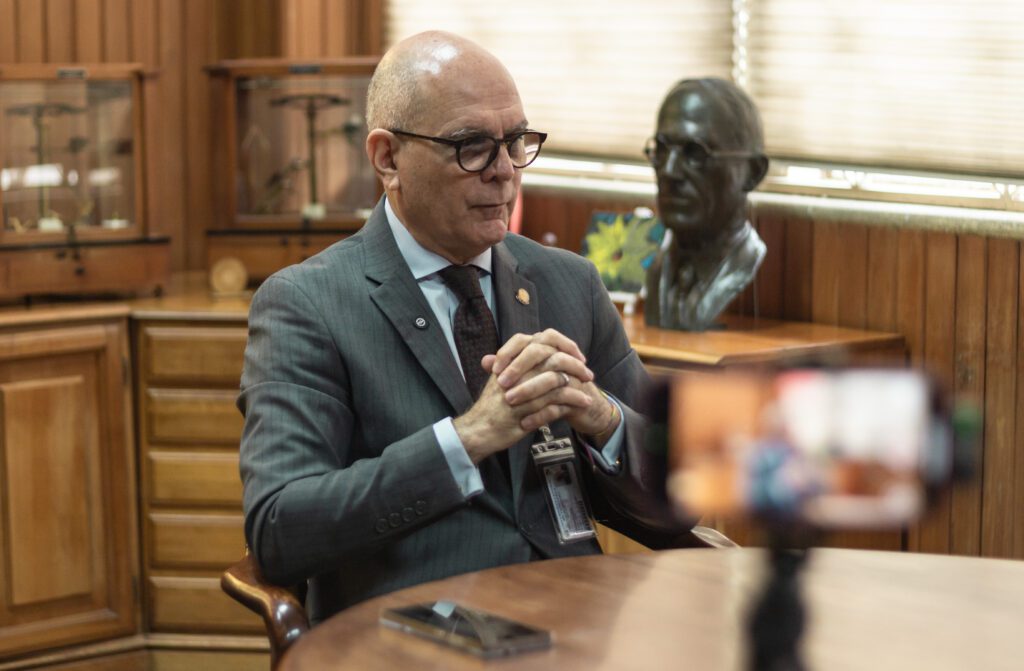
Since you mention the need to develop public policies, if you were in a position to solve problems associated with the current health situation in the country, what would be the priorities? Where would you start?
Priority one is to create spaces for encounter. We could develop projects at the Faculty of Medicine of the UCV to address the issue of both training and health care. Now, if that does not have room for its execution, the first thing we have to do is heed the call to create the space that allows us to think about the country we want.
In terms of specific policies in the educational field, there are experiences here of a process of curricular transformation of the Faculty of Medicine that are more than 20 years old. When I return from doing my doctorate, that has been my workspace. This is a 300-year-old university, which has done very good things, but they have to be adapted to the times.
On the subject of health service assistance, it is much more complex, it is probably not strictly my professional area of expertise, but hey, there are trained people for that. Here at the Faculty, many of those who are part of the management team have training in the area of health management.
I could name a number of talent that would already be available to harmonize human resource training policies and a health care policy that really benefits from a dignified and quality health care provision without discrimination. That all Venezuelans have the right to a health service that is truly attended by competent doctors and professionals and that they also have sufficient resources.
That model of public university, dependent on the public treasury, which also gives us nothing, is a finished model.
Should health care in Venezuela be public or private?
I admire countries with solid public health systems, for example, the Spanish public health system. It has a decent public health system, which has even better resources than the private system. The taxes paid by citizens are reverted to that, to hospitals with the right
equipment and staff. Socialism is not this imaginary that we have been led to believe. Socialism is a system of social justice where these three sectors, health, education and security, have the total population covered. I believe in the principle of free will, my ability to develop better than others, but that there is a minimum that provides possibilities to the common citizen.
That model of public university, dependent on the public treasury, which also gives us nothing, is a finished model. The university authorities necessarily have to look for a management model that guarantees that, in addition to the budget that the State must allocate by unconstitutional obligation, it has the possibility of self-financing.
We are trying to set up a management model that also allows us to really have a relationship between public and private clinical institutions, and to achieve that illusion that the Liberator had when he donated all that land to us so that the University would have that financial autonomy that we have never had.
Here in that aspect we are not talking about profit, but about the University really being able to continue operating independently of an ordinary fiscal budget that we already know what it is about at the moment, but I comment on it with some frequency: Even if they give us 100% of the requested budget, this (the University) is such a complex structure that it would not be enough.
In the face of the current situation, in which you have described weaknesses, opportunities, strengths and threats. How do you envision Venezuelan medicine in the next 10 or 20 years?
I believe that if one remains faithful to that virtue of perseverance, of believing that there are always opportunities for improvement and also, that we continue doing what we are doing, which is, in the case of the Faculty of Medicine, generating knowledge and training a quality human resource, we really have the possibility of moving towards that country that I have dreamed of since I was a child.
There are weaknesses and we have talked about them there during these minutes, there are vices, there are anachronisms, even within the University that has nothing to do with the outside. This is a University that if it has all the virtues and values that it has, because we have to recognize that there are vices and we are in a structure where there is a lot of corruption.
We have three premises in this management: 1) to make an efficient management with the few resources, 2) a transparent management so that where we have the opportunity to show irregular management, that we will not have any problem making the corresponding complaint and promoting the sanctions that need to be promoted and, 3) it is a collaborative work.
I am fortunate after two years to proudly say that an authentic work team has been integrated here with people with a lot of commitment, with shared purposes and also higher purposes than what we want in the end, is when we have to hand over the management in July of next year, then we will deliver a Faculty of Medicine much better than the one we received.
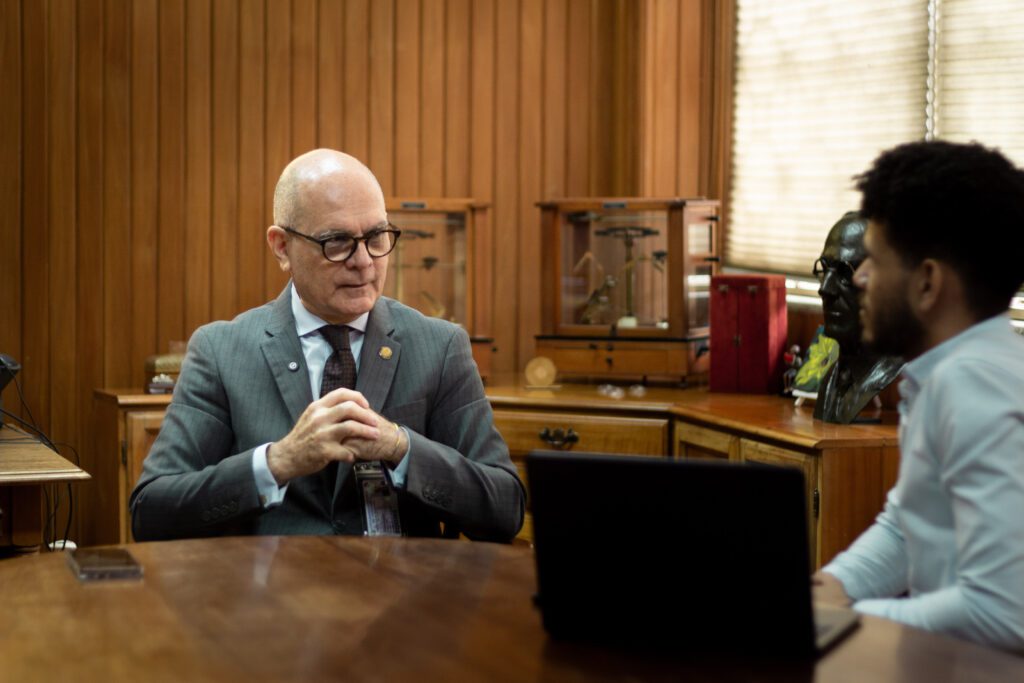
We are the first university in Venezuela, and the 35th in Latin America, it is no coincidence.
Beyond academic training, what role would the UCV play precisely in this reconstruction that you envision in the coming years?
The generation of knowledge. That we are the first in Venezuela, and the 35th in Latin America, is no coincidence. That is not a number that is set, that is because despite the few resources, knowledge continues to be generated here and that is a fundamental task of the university in the world. It is what allows us to advance over time in all aspects, both scientific and technological.
I think there is something that needs to be claimed. University extension, which is that relationship with society as a whole, is also an aspect that the Faculty has made a conscious effort to consolidate and guarantee that our undergraduate and graduate students are inserted in projects that have links of service to society.
Despite the Integrative Community Medicine program that already has about 50,000 doctors trained, we still do not reach the WHO standards in terms of the number of doctors needed to care for the population. In other words, we have to continue training human resources, but a human resource that we really guarantee to society that is well trained.
If you don’t have a teacher trained in these new technologies, then how do you train the student if the teacher doesn’t know what it’s about?
Regarding this need for innovation, how has the University and especially the Faculty of Medicine managed in the face of the technological innovations of recent years, such as Artificial Intelligence and other technologies, precisely for the development of academic training and the practice of the profession of Medicine?
Since 2010 we have been immersed in the Fourth Industrial Revolution, which puts us, in the area of health, in what is called “Health 4.0”. This is a revolution that began in the year 2000, this last one and we are in 2025. In just 15 years this is dizzying. In 15 years this has evolved at a pace that is unprecedented.
It is not only Artificial Intelligence, that is a fully functional technology ecosystem, it is interconnected to Big Data, the internet in the cloud, the Internet of Things (IoT), cyber-physical systems, blockchain. Probably, what concerns us most right now is the issue of Artificial Intelligence, but it is not only it. We have the obligation to incorporate all these technologies into the curriculum of both undergraduate and graduate studies.
In the particular case of Artificial Intelligence, we are still in a very incipient stage of its rigorous incorporation of medical education, and there we are trying to do it with the greatest possible responsibility, I insist with very few resources, which is one of the weaknesses or limitations, but it is no excuse for us not to do it.
So, in this first stage in which we are, teacher training in this aspect is fundamental. In other words, if you don’t have a teacher trained in these new technologies, then how do you train the student if the teacher doesn’t know what it’s about? So, the insistence in this first stage is that our teachers really acquire the necessary skills so that they can later be transferred.
The other aspect is the issue of quality control of the recommendations generated by Artificial Intelligence. One of the most important challenges is the issue of algorithmic bias. You know that Artificial Intelligence is nourished by the data that is provided. Now, the question, how much data is middle- or low-income countries like ours contributing?
High-income countries and big tech are the ones that are fueling learning models. So, is our population really represented in those recommendations given by Artificial Intelligence? We have to evaluate the quality of the representations it generates for us, because it may be that our patients, our students, are not represented.
We must have some criteria for reflection when using what Artificial Intelligence offers us, because those recommendations are probably not applicable to our environment. And well, that means that at some point we will also contribute data so that we are really represented and avoid perpetuating over time conditions of discrimination that have been present in medical education.
Research is a fundamental pillar, in addition to teaching and university extension. This is not a school where information is transmitted, here we also come to generate knowledge and we are doing it. A little bit of the idea right now is to share where we are researching, doing, sharing capabilities, so that our data feeds Artificial Intelligence as well.
Instead of continuing to train or create new medical schools, why don’t we strengthen the faculties that we already have, that are consolidated, that have a historical heritage?
Finally, what message would you give to young Venezuelans who dream of studying medicine in our country?
There are many dreamers of studying medicine. This is the most demanded career at the University historically, but recent data from Simadi (Admission System by Academic Merit and Comprehensive Diagnosis) of this year because the Medicine bar far exceeds the bars, I think the second is Social Communication.
We need doctors. The country does not yet meet the standards. Now, they do have to understand that the capacity to respond has limits. We have a quota forecast for two medical schools of about 200 students a year, which is what we can train with quality with the resources we have. So, don’t ask us for more because there is no capacity to respond and we are not to blame.
I insist, this happens because the State provides us with the necessary resources. Instead of continuing to train or create new medical schools, why don’t we strengthen the faculties that we already have, that are consolidated, that have a historical heritage? Why don’t we give the resources that we are giving to others to universities where there is already experience, where there are trained teachers?
In this way, the message is to stay linked to their life purposes, whoever wants to be a doctor, who insists on being a doctor. There are three mechanisms for admission to the Faculty of Medicine, and if we add the Samuel Robinson Program, it would be the fourth. These are the admission through the OPSU (Office of Planning of the University Sector), the Simadi test, and in the Faculty an additional mechanism was created when we arrived at the management, which is a preparatory course.
Obviously, the best are going to come in. Medicine is a career, not at the national level, but at the global level, with very high standards for income. Very high previous grades are required in addition to meeting the standards that are required for admission.
So to them, don’t be discouraged. Just as I told you about that little boy (himself), who came from Upata and who wanted to be a doctor and came to the Central. Well, that’s it, a life purpose and one has to pursue one’s dream and I’m sure that when we do it from conviction we achieve it.

